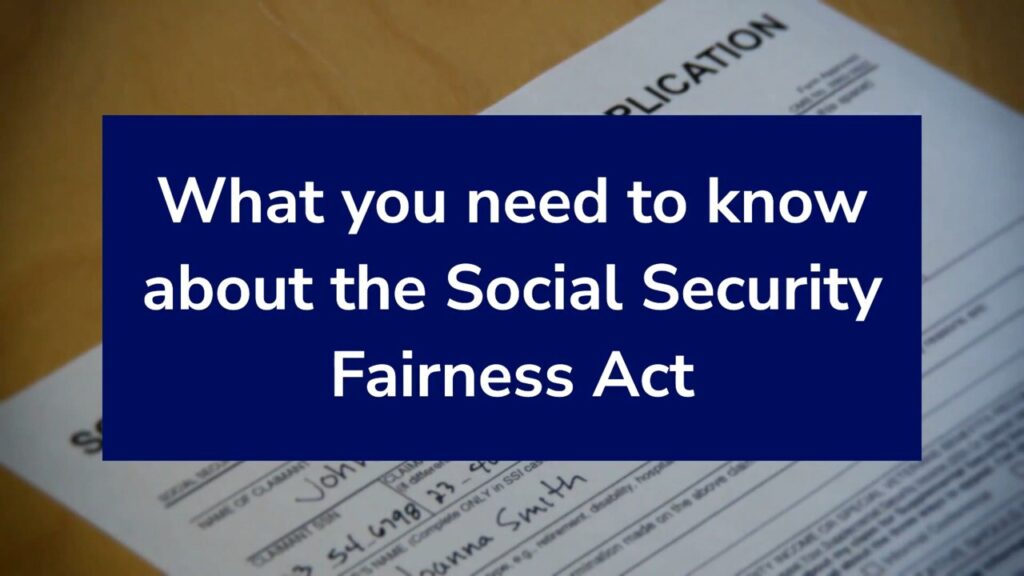In early July 2025, following the enactment of the so‑called One Big Beautiful Bill (OBBB), the Social Security Administration (SSA) sent an email to tens of millions of “My Social Security” account holders. The email celebrated new “historic tax relief for seniors,” asserting that the legislation “eliminates federal income taxes on Social Security benefits for most beneficiaries.”
That sweeping message drew sharp criticism from policy experts and former SSA officials, who called it misleading, factually incorrect, and a breach of the agency’s longstanding nonpartisan communication norms.
What the Email Claimed vs. What the Law Actually Does
The Email’s Claim
- The SSA claimed that nearly 90% of beneficiaries would no longer pay federal income tax on their Social Security benefits, portraying the new law as essentially a complete repeal of taxes for seniors.
- The agency called it a “landmark tax relief”, suggesting broad and permanent relief.
What the One Big Beautiful Bill Actually Provides
- No provision in the law directly eliminates Social Security taxation. A tax repeal was excluded due to Senate budget rules (the Byrd Rule). The bill offers instead a temporary extra standard deduction—$6,000 for individuals and $12,000 for couples aged 65+—through tax year 2028, subject to income limits.
- While this broadened deduction means a higher percentage of seniors (from ~64% to ~88%) may owe no tax on their benefits (based on White House estimates), the change applies to all income, not just Social Security benefits—and the effect diminishes at higher income levels.
Why Experts Say the Messaging Was Misleading
1. False Implication of a Tax Repeal
Policy expert Howard Gleckman and Tax Policy Center analysts emphasized that the legislation does not repeal Social Security taxation. It merely increases deductions, reducing taxable income indirectly.
The SSA’s claim that the law “eliminates” Social Security taxes misrepresents how tax policy operates and oversells its scope.
2. Targeted and Temporary Relief
- The deduction is temporary, intended to expire in 2028 unless renewed.
- It’s available only to taxpayers aged 65 or older, excluding younger beneficiaries, including many on disability or early retirement.
- Income thresholds phase out the benefit: individuals earning above $75,000 (joint above $150,000) receive reduced or zero benefit.
Thus, most benefit accrues to moderate‑ to upper‑middle‑income seniors—not the entire beneficiary population.
The Fallout: Trust, Partisanship, and Vulnerability
Breaking Norms of Nonpartisanship
Michael Hiltzik (LA Times) noted the email represented an unprecedented political “victory lap” by SSA, an agency historically averse to partisan messaging. Groups like the National Committee to Preserve Social Security and Medicare called it “blatantly political and misleading.”
That departure undermines the institutional trust SSA typically carries and opens it to criticism for politicization.
Risk of Increased Scams
Former SSA officials and policy watchers warned that an official-looking yet inaccurate email could make seniors more susceptible to future phishing or impersonation attempts—many of which rely on the same language of urgency and official‑tone messaging.
Who Stands to Benefit—and Who Still Pays
Estimated Fiscal Impact
Analysts at the Committee for a Responsible Federal Budget and the Tax Policy Center estimate that the deduction will reduce Social Security and Medicare revenue by approximately $30 billion per year, potentially accelerating trust‑fund depletion by up to a year (from 2033 to 2032).
Beneficiary Breakdown
- The largest tax relief goes to seniors with incomes from roughly $75,000 to $150,000, who were previously taxed but now may fall under exemption thresholds.
- Lower-income seniors who already pay no taxes will see no material benefit.
- Those under age 65—including younger beneficiaries—are entirely excluded.
Communicating Better: Guidance for Beneficiaries
If you received the SSA’s email and are uncertain how it affects you:
- Know the rules: The law increases deductions—it doesn’t repeal Social Security taxes.
- Check if you qualify: Must be 65+ and within income limits.
- Understand your tax status: Many seniors have already owed no tax. This change may have minimal impact.
- Watch for phony emails: The SSA rarely contacts beneficiaries by email—with few exceptions. If unsure, go directly to SSA.gov or contact them via published channels.
- Plan ahead: Because the provision expires in 2028, don’t assume permanent relief.
Broader Implications and Political Context
Credibility Risks for SSA
The email damaged SSA’s reputation for accuracy and neutrality. As Hiltzik wrote, it eroded the agency’s historical identity as a trusted steward of retirement security.
Fiscal and Policy Tensions
The deduction serves as temporary relief—but it comes under a law that has been estimated to increase deficits by over $3 trillion and reduce health coverage for nearly 11 million Americans. Critics argue the messaging distracts from broader fiscal concerns.
Conclusion: Relief Miscommunicated
The SSA email conveyed a misleading impression that federal taxes on Social Security benefits had been eliminated for most seniors—something the law does not provide. In reality, the One Big Beautiful Bill grants a temporary, income-limited enhanced deduction that may reduce taxable income enough for many seniors to owe no tax—but does not change Social Security tax rules themselves.





